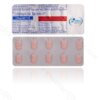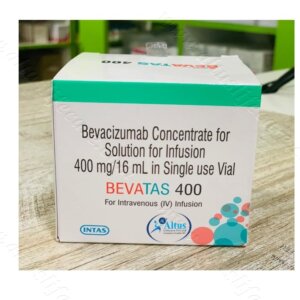- Modafinil
- Urology Segment
- Thyroid Care
- Armodafinil
- HIV Medicines
- Weight Loss
- Naltrexone
- Anti Emetic
- Neuropathic Pain
- Mens Health
- Hair Loss
- Pain Relief
- HCG Injections
- Quit Smoking
- Pharmaceutical Vaccine
- Best Selling Products
- Anti Viral
- Bimatoprost
- Antibiotics
- Women's Health
- Cetaphil
- Botulinum
- Diabetes
- Human Albumin
- Anti Malarial
- Dermal fillers
- Chemical Peels
- Nephrology Segment
- Kidney / Liver Care
- Anti Cancer
- Altus Product's
- Pharmaceutical Products
- Anti Fungal
- Hepatitis
- Beauty & Skin Care
- Asthma
- Anti-Cancer
- Armodafinil
- Bimatoprost
- Botulinum
- Dermal Fillers
- Hepatitis
- Mens-health
- Modafinil
- Naltrexone
- ANTI EMETIC
- Altus Product’s
- Anti Fungal
- Anti Malarial
- Anti Viral
- Antibiotics
- Asthma
- Beauty & Skin Care
- Cetaphil
- Chemical Peels
- Diabetes
- Hair Loss
- HCG Injections
- HIV Medicines
- Human Albumin
- Kidney / Liver Care
- Neuropathic Pain
- Pain Relief
- Pharmaceutical Products
- Pharmaceutical Vaccine
- Quit Smoking
- Thyroid Care
- Weight Loss
- Women’s Health
- Modafinil
- Urology Segment
- Thyroid Care
- Armodafinil
- HIV Medicines
- Weight Loss
- Naltrexone
- Anti Emetic
- Neuropathic Pain
- Mens Health
- Hair Loss
- Pain Relief
- HCG Injections
- Quit Smoking
- Pharmaceutical Vaccine
- Best Selling Products
- Anti Viral
- Bimatoprost
- Antibiotics
- Women's Health
- Cetaphil
- Botulinum
- Diabetes
- Human Albumin
- Anti Malarial
- Dermal fillers
- Chemical Peels
- Nephrology Segment
- Kidney / Liver Care
- Anti Cancer
- Altus Product's
- Pharmaceutical Products
- Anti Fungal
- Hepatitis
- Beauty & Skin Care
- Asthma
No products in the cart.
Return To Shop$15.38 – $83.33Price range: $15.38 through $83.33
Glypride 2 Tablet (Glimepiride 2mg)
Glypride 2 Tablet belongs to a group of medicines called sulfonylureas and is used to treat type 2 diabetes mellitus in adults. It helps control blood sugar levels in people with diabetes thereby preventing serious complications of diabetes such as kidney damage and blindness.
Have questions?
Call : +91 9002 1002 33
Glypride 2 Tablet (Glimepiride 2mg)
| COUNTRY OF ORIGIN | India |
|---|---|
| DOSAGE FORM | Tablets |
| EQUIVALENT BRAND | Amaryl |
| GENERIC NAME | Glimepiride |
| INDICATION | Type 2 diabetes |
| MANUFACTURER | Sun Pharmaceutical Industries Ltd |
| PACKAGING | 10 tablets in 1 strip |
| COMPOSITION | Glimepiride (2mg) |
| PACK SIZE | 200 Tablet/s, 300 Tablet/s, 400 Tablet/s, 500 Tablet/s |
PRODUCT INTRODUCTION
Glypride 2 Tablet belongs to a group of medicines called sulfonylureas and is used to treat type 2 diabetes mellitus in adults. It helps control blood sugar levels in people with diabetes thereby preventing serious complications of diabetes such as kidney damage and blindness.
Glypride 2 Tablet may be used alone or along with other medicines. It should be taken just before or with the first meal of the day. Take it regularly at the same time each day to get the maximum benefit. Your doctor will decide what dose is best for you and this may change from time to time according to your blood sugar levels.
Keep taking this medicine, even if you feel well or your blood sugar levels are controlled. If you stop it without consulting your doctor, your blood sugar levels could rise to put you at risk of diabetes complications such as kidney damage, blindness, nerve problems, and loss of limbs. Remember that it is only part of a treatment program that should also include a healthy diet, regular exercise, and weight reduction as advised by your doctor. Your lifestyle plays a big part in controlling diabetes.
The most common side effects of taking this medicine include low blood sugar levels (hypoglycemia), nausea, headache, and dizziness. Make sure you recognize the signs of having low blood sugar levels, such as sweating, dizziness, headache, and shaking, and know how to deal with them. To prevent this, it is important to have regular meals and always carry a fast-acting source of glucose such as sugary food or fruit juice with you. Drinking alcohol can also increase your risk of low blood sugar levels and hence should be avoided. Some people may experience an increase in weight with this medicine.
You should not take it if you have type 1 diabetes mellitus, diabetic ketoacidosis (high levels of acid in your blood), or if you have severe kidney or liver disease. Before taking this medicine, tell your doctor if you have ever had heart disease, thyroid disease, or some hormonal conditions, as it may not be suitable. Pregnant or breastfeeding women should also consult their doctor before taking it. Your blood sugar levels should be checked regularly and your doctor may also advise blood tests to monitor your blood cell counts and liver function.
Glimepiride 2mg: Modulating Blood Sugar with Precision in Diabetes Care
In the realm of diabetes management, Glimepiride 2mg stands as a crucial player, finely tuned for the nuanced needs of individuals with type 2 diabetes. As a second-generation sulfonylurea, Glimepiride functions by stimulating the pancreas to release insulin, facilitating the uptake of glucose by cells. The 2mg strength reflects a delicate balance, providing an effective yet conservative approach to glycemic control. This dosage is often prescribed as an initial or maintenance therapy, particularly for individuals requiring a subtle adjustment to their treatment plan. Collaborative efforts between healthcare providers and patients, including regular monitoring and lifestyle modifications, are essential to harness the precision of Glimepiride 2mg for optimal diabetes care.
Navigating Glimepiride 2mg: A Gentle Approach to Blood Sugar Management
Amidst the complexities of diabetes care, Glimepiride 2mg emerges as a gentle yet impactful tool for navigating blood sugar modulation. This dosage exemplifies a careful calibration, allowing for effective glycemic control while minimizing the risk of hypoglycemia. The medication’s mechanism of action, enhancing insulin secretion, aligns with the needs of patients whose beta cells retain some functionality. Healthcare providers may prescribe Glimepiride 2mg as part of a tailored treatment strategy, recognizing its role in promoting glycemic stability without undue intensity. Regular communication, adherence to prescribed dosages, and lifestyle adjustments collectively contribute to the success of Glimepiride 2mg in providing a gentle and precise approach to type 2 diabetes management.
“Understanding Glimepiride’s Impact on Insulin Sensitivity”
Insulin sensitivity is a critical factor in diabetes management, and this section explores how Glimepiride impacts this key aspect. By understanding its effects on insulin sensitivity, healthcare professionals can tailor treatment plans to enhance overall glycemic control.
“Choosing Glimepiride: A Guide for Healthcare Professionals”
Aimed at healthcare professionals, this paragraph serves as a guide in the decision-making process of choosing Glimepiride for diabetes management. By considering patient characteristics, preferences, and treatment goals, providers can make informed choices aligned with individualized care.
Mastering Metabolism: Drug for Diabetes Mellitus Type 2 Chronicles
Mastering the intricacies of metabolism in Diabetes Mellitus Type 2, this exploration discusses the drug’s role in optimizing metabolic processes for improved health outcomes.
Signs and Symptoms of Type 2 Diabetes Mellitus: Early Indicators of Metabolic Shifts
Investigate the early indicators of metabolic shifts associated with Type 2 Diabetes Mellitus. Understand how recognizing these signs early on can contribute to proactive health measures and prevention.
Role of Gut Microbiota Modulation in Treatment of Type 2 Diabetes Mellitus
Investigating the gut-brain connection, this section explores the role of gut microbiota modulation in the treatment of Type 2 Diabetes Mellitus. By understanding how the microbiome influences metabolism, the discussion aims to identify strategies for manipulating gut flora to improve diabetes outcomes.
“Meds for Diabetes Mellitus Type 2: Navigating Medication Strategies for a Healthier Tomorrow”
Navigate through various medication strategies with a focus on fostering a healthier tomorrow for individuals managing Type 2 Diabetes. This guide provides insights into strategic medication approaches that align with long-term health goals, contributing to improved health outcomes and overall well-being.
Medications for Diabetes Mellitus Type 2: Medication Reviews for Cognitive Health
– Cognitive health is integral to overall well-being. Explore this blog to understand the importance of medication reviews in preserving cognitive health, emphasizing the role of healthcare providers in monitoring and optimizing medications for individuals with type 2 diabetes.
DM Type 2 Medications: Prescription Wisdom for Medication Mastery
Explore the wisdom embedded in prescription practices to attain medication mastery for individuals managing Type 2 Diabetes. Understand how prescription insights contribute to effective diabetes management and improved health outcomes.
Diabetes Mellitus Medications: A Holistic Approach to Medication Mastery
Embrace a holistic and comprehensive approach to medication use for mastery in diabetes care. This guide encourages individuals to consider the holistic aspects of their health in medication management, fostering a sense of mastery and well-being.
USES OF GLYPRIDE TABLET
- Treatment of Type 2 diabetes mellitus
BENEFITS OF GLYPRIDE TABLET
In Treatment of Type 2 diabetes mellitus
Glypride 2 Tablet increases the amount of insulin your body produces (in the pancreas). The insulin then works to lower your blood glucose level. It is usually taken once a day. You should keep taking it for as long as it is prescribed.
Lowering blood glucose levels is an essential part of managing diabetes. If you can control the level you will reduce the risk of getting any of the serious complications of diabetes such as kidney damage, eye damage, nerve problems, and loss of limbs. Taking this medicine regularly along with proper diet and exercise will help you live a normal, healthy life.
SIDE EFFECTS OF GLYPRIDE TABLET
Common side effects of Glypride
- Hypoglycemia (low blood glucose level)
- Headache
- Nausea
- Dizziness
HOW TO USE GLYPRIDE TABLET
HOW GLYPRIDE TABLET WORKS
SAFETY ADVICE
Alcohol
Pregnancy
Breast feeding
Monitoring of the breastfed infant’s blood glucose is advisable during maternal therapy with Glypride 2 Tablet
Driving
Kidney
Use of Glypride 2 Tablet is not recommended in patients with severe kidney disease. These patients can experience very low blood sugar levels which may become normal after a long time.
Liver
However, the use of Glypride 2 Tab let is not recommended in patients with severe liver disease. These patients can experience very low blood sugar levels which may become normal after a long time.
WHAT IF YOU FORGET TO TAKE GLYPRIDE TABLET?
| Pack Size | 200 Tablet/s, 300 Tablet/s, 400 Tablet/s, 500 Tablet/s |
|---|
2 reviews for Glypride 2 Tablet (Glimepiride 2mg)
Related products
Resof-L Tablet | Ledipasvir | Sofosbuvir
From: $256.41Velasof Tablet | Sofosbuvir | Velpatasvir
From: $179.49Pemnat Injection (Pemetrexed)
From: $149.35Sofocruz LP Tablet | Ledipasvir | Sofosbuvir 400mg
From: $192.31Myezom Injection (Bortezomib)
From: $188.31Bevatas Injection (Bevacizumab)
From: $145.45Daunotec 20mg Injection | Daunorubicin
From: $54.55People also bought
-

Benoquin 40 Cream | Monobenzone 40%
From: $154.77 -
 From: $38.38
From: $38.38 -
 From: $40.05
From: $40.05 -

Aziderm 10% Cream 15gm | Azelaic Acid 10%
From: $39.26
Our Services
Shipping
Shipping at Discounted Price
Money Returns
Return Within 30 Days
Secure Payment
Safe & Secure Payment
Support 24/7
Contact 24 Hours Day
From: $28.21


From: $50.00
- Anti-Cancer
- Armodafinil
- Bimatoprost
- Botulinum
- Dermal Fillers
- Hepatitis
- Mens-health
- Modafinil
- Naltrexone
- ANTI EMETIC
- Altus Product’s
- Anti Fungal
- Anti Malarial
- Anti Viral
- Antibiotics
- Asthma
- Beauty & Skin Care
- Cetaphil
- Chemical Peels
- Diabetes
- Hair Loss
- HCG Injections
- HIV Medicines
- Human Albumin
- Kidney / Liver Care
- Neuropathic Pain
- Pain Relief
- Pharmaceutical Products
- Pharmaceutical Vaccine
- Quit Smoking
- Thyroid Care
- Weight Loss
- Women’s Health













Gabriela (verified owner) –
The awareness of sugar alternatives has allowed me to enjoy sweet treats in moderation while managing type 2 diabetes.
Lacey (verified owner) –
“The quality is outstanding, and the shipping was surprisingly fast!”